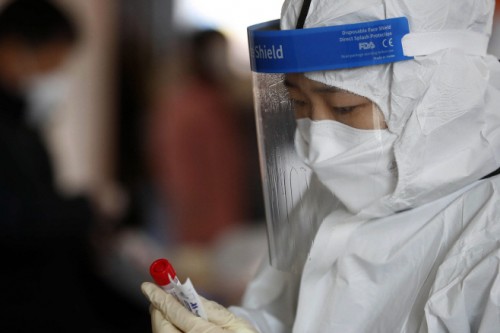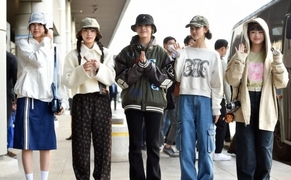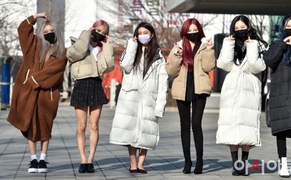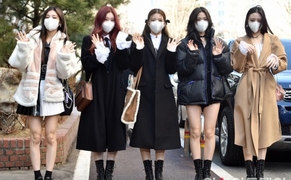 |
| A health worker works at a makeshift COVID-19 testing station in the southwestern city of Gwangju on Jan. 21, 2022./ Source: Yonhap |
AsiaToday reporter Park Ah-ram
South Korea has faced the fifth wave of the pandemic driven by the omicron variant as the detection rate of the omicron has reached nearly 50 percent and daily caseloads exceeded 7,000 for a second consecutive day, recording the second-largest figure to date.
The government is planning to introduce an omicron-tailored response system if the daily average number of COVID-19 cases for a week goes over 7,000. As the upcoming Lunar New Year holidays, which starts Jan. 29, are expected to become a turning point of the spread of the virus, the government’s new medical response system is expected to be launched nationwide this month.
The country added 7,630 new COVID-19 infections as of Saturday midnight, raising the total caseload to 733,902, according to the Korea Disease Control and Prevention Agency (KDCA). Daily case counts on weekends have tended to be smaller due to fewer tests being taken, but the spread of the omicron variant has led to an apparent increase, regardless of the day of the week. The country’s new COVID19 cases spiked to second-largest figure to date.
The omicron variant is spreading rapidly. Among confirmed COVID-19 patients in Korea from Jan. 16-19, 47.1 percent were infected with the omicron variant. In particular, the omicron variant has already become the dominant strain in the Honam region with 59.2 percent.
From Wednesday, the government has decided to apply new measures first in four regions – Gwangju, South Jeolla Province and Pyongtaek and Anseong in Gyeonggi Province – where the omicron has spread widely.
Under the new measures, polymerase chain reaction, or PCR, tests for COVID-19 will only be used for high-risk groups, such as close contacts and those aged 60 and older.
For those who are not a priority, in the event of symptoms, they need to see a doctor at designated clinics for a note on whether they should be tested. The cost of each visit to the clinic is around 5,000 won.
Rapid antigen testing for the purpose of obtaining a pass must be performed at testing centers and designated clinics. Tests taken at home will not be recognized.
The government also has decided to lower the minimum age for COVID-19 edible treatments from 65 to 60 years old from Sunday. The quarantine period for those infected – if they are fully vaccinated- will be shortened to seven days from the current 10 days.
#omicron #5th wave
Copyright by Asiatoday
Most Read
-
1
-
2
-
3
-
4
-
5
-
6
-
7





















